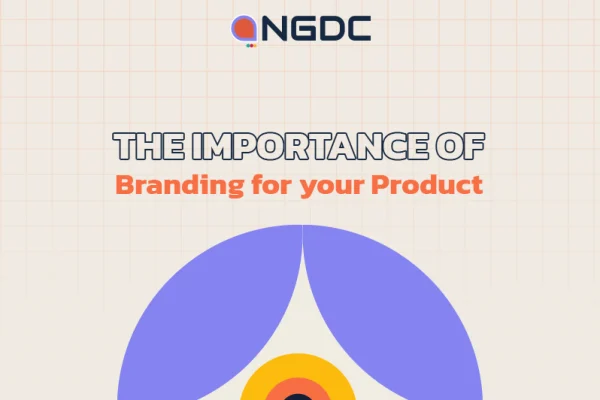Hello world!
May 4, 2021
What is a Marketing Plan? And the definition of a marketing strategy?
July 29, 2021It may appear that advertising and marketing are two concepts with similar objective. In fact, they do have the same objective: alerting consumers to products and services being sold. Marketing and advertising have many things in common, but there are some differences. Comprehension of these differences and similarities will help any business or organization with their strategy
What is Marketing?
Marketing is a process that involves design, creation, research, and data mining about how to best align the idea of a product or service with the target audience. This gives the company top-of-mind awareness and name recognition. Marketing can be expensive but really should come first.
How Do You Market?
Marketing involves research and analysis. This involves studying audience response and creating language and design that will have the most impact on your target audience. Certain groups of consumers respond better to images and words than others. Slogans and mission statements that effectively express the product’s “message” are crucial in marketing.
What Is Advertising?
Advertising is the literal process of making a product and service known to an audience. It is the description used to present the product, idea or service to the world. This generally entails advertising campaigns in the media. An advertising campaign uses creative positioning in the media. Advertising must be timely and used in a specifically strategic way. It should always have a call to action.
Understanding the differences between marketing and advertising helps companies maximize their budgets, teams, and market reach. But you aren’t in it alone—contact MadCap Marketing to utilize our marketing and advertising experience.
How to tell the difference between marketing and advertising?
Advertising is anything that has to do with—you guessed it—ads. Advertising occurs across multiple mediums, but the one factor all advertising has in common is that the brand or marketer pays to send a specific message (the ad) on a certain platform. Typically, the more desirable the platform—and the more desirable the audience that platform reaches—the more brands/marketers can expect to pay for the ad (so, for example, buying a quarter-page ad in a regional trade publication is going to cost a lot less than a full-page ad in a national magazine; you’ll pay more for a two-minute commercial during the hottest primetime TV show than you would for a 30-second spot on a local news channel).
Marketing, on the other hand, is any practice or action that’s taken to promote your brand. As mentioned, this can include advertising—but it also includes any other promotional activities your brand leverages to get the word out about your products, services, or business as a whole. Sometimes, you have to pay for marketing practices, but not always! Unlike advertising, there are plenty of free marketing strategies you can leverage to get the word out about your company (and drive serious results in the process).
Is Marketing or Advertising More Valuable?
Many successful businesses incorporate multifaceted advertising strategies into their overall marketing plan. This is particularly true for global companies, where marketing strategy and advertising placement must take into account customers across the world. Though it also applies to small and medium businesses, especially with the affordability of digital advertising through search engines and social media.
That being said, there is a situation where marketing is likely more valuable than advertising. In the case of startup companies and other new enterprises, the priority should be developing a marketing plan. If these organizations spend too much on advertising at the onset—without an established or sustainable marketing plan—it can be a disaster.
At the onset of corporate existence, it is paramount to define and execute a marketing plan by identifying customer wants and needs. That way, any future marketing or advertising efforts will have a defined approach and a better chance of success.
It may appear that advertising and marketing are two concepts with similar objective. In fact, they do have the same objective: alerting consumers to products and services being sold. Marketing and advertising have many things in common, but there are some differences. Comprehension of these differences and similarities will help any business or organization with their strategy
What is Marketing?
Marketing is a process that involves design, creation, research, and data mining about how to best align the idea of a product or service with the target audience. This gives the company top-of-mind awareness and name recognition. Marketing can be expensive but really should come first.
How Do You Market?
Marketing involves research and analysis. This involves studying audience response and creating language and design that will have the most impact on your target audience. Certain groups of consumers respond better to images and words than others. Slogans and mission statements that effectively express the product’s “message” are crucial in marketing.
What Is Advertising?
Advertising is the literal process of making a product and service known to an audience. It is the description used to present the product, idea or service to the world. This generally entails advertising campaigns in the media. An advertising campaign uses creative positioning in the media. Advertising must be timely and used in a specifically strategic way. It should always have a call to action.
Understanding the differences between marketing and advertising helps companies maximize their budgets, teams, and market reach. But you aren’t in it alone—contact MadCap Marketing to utilize our marketing and advertising experience.
How to tell the difference between marketing and advertising?
Advertising is anything that has to do with—you guessed it—ads. Advertising occurs across multiple mediums, but the one factor all advertising has in common is that the brand or marketer pays to send a specific message (the ad) on a certain platform. Typically, the more desirable the platform—and the more desirable the audience that platform reaches—the more brands/marketers can expect to pay for the ad (so, for example, buying a quarter-page ad in a regional trade publication is going to cost a lot less than a full-page ad in a national magazine; you’ll pay more for a two-minute commercial during the hottest primetime TV show than you would for a 30-second spot on a local news channel).
Marketing, on the other hand, is any practice or action that’s taken to promote your brand. As mentioned, this can include advertising—but it also includes any other promotional activities your brand leverages to get the word out about your products, services, or business as a whole. Sometimes, you have to pay for marketing practices, but not always! Unlike advertising, there are plenty of free marketing strategies you can leverage to get the word out about your company (and drive serious results in the process).
Is Marketing or Advertising More Valuable?
Many successful businesses incorporate multifaceted advertising strategies into their overall marketing plan. This is particularly true for global companies, where marketing strategy and advertising placement must take into account customers across the world. Though it also applies to small and medium businesses, especially with the affordability of digital advertising through search engines and social media.
That being said, there is a situation where marketing is likely more valuable than advertising. In the case of startup companies and other new enterprises, the priority should be developing a marketing plan. If these organizations spend too much on advertising at the onset—without an established or sustainable marketing plan—it can be a disaster.
At the onset of corporate existence, it is paramount to define and execute a marketing plan by identifying customer wants and needs. That way, any future marketing or advertising efforts will have a defined approach and a better chance of success.





